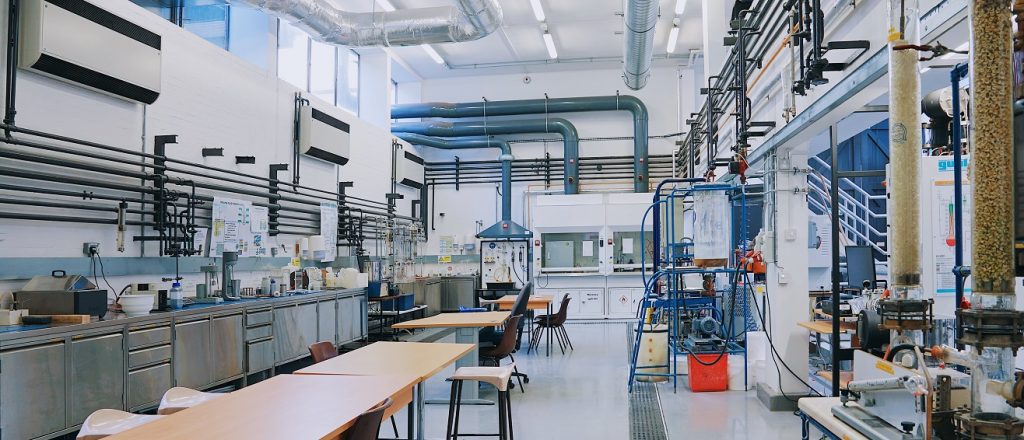MEng (Hons) Chemical and Energy Engineering

Overview
A new type of energy programme
This course takes a forward-thinking approach to the traditional energy (oil and gas) supplies and delivers concepts that fit with the future of decreased reliance on fossil fuels. We have used the subsurface and energy expertise developed at LSBU to produce a new type of energy undergraduate programme.
The course brings together the essentials of chemical engineering with an added flavour of geoscience, exploration and processing to highlight and develop a deep understanding of the energy mix. It will show how oil and gas techniques can be used to harness geothermal energy, develop concepts of carbon dioxide storage in sub surface environments and inform you on the myriad of renewable energy technologies that are available.
This course will prepare you for a career in which you’ll design, be creative, research and test new products – new fuels, imaginary processes or complete systems – and make them commercially viable.
Why Chemical Engineering at LSBU?
- Ranked 1st for graduate prospects in London (Sunday Times Good University Guide 2020).
- Top 10 in UK for career prospects in Chemical Engineering (Guardian 2019).
- Placement opportunities – in your third year you have the option to undertake a placement, giving you valuable experience.
- Ranked joint 3rd for student voice, Engineering (National Student Survey 2019).
Modules
This course is an integrated programme and is distinctive as it covers the theory of chemical engineering coupled with computer simulation, laboratory practice and industrial placement that enable graduates to be well equipped with desired skills sought after by employers.
The course has the added value of introducing topics that are important for the future energy mixed with a focus on renewables as well as oil and gas. It consists of modules with a total credit value of 480 credits which are made up of 20 standard modules of 20 points each and a design project module of 40 points in third year, and group project module of 40 points in fourth year.
Each year you need to complete 120 credits. In the first year, you are introduced to basic engineering principles and design and fundamentals of chemical engineering. The second year focusses on core unit operations such as fluid flow, thermodynamics, chemical reactions, separation processes, process design and simulation and control. In the third year, the course trains you in specific areas of sustainable energy, energy technologies, and earth resources of energy. You apply all the knowledge gained in your previous study into design project covering from raw materials to final desired products. In the fourth and final year, you further learn, at an advanced level, about energy technologies and subsurface engineering, as well as undertaking a research project.
Year 1
- Introduction to chemical engineering
- Engineering mathematics and modelling
- Engineering principles
- Engineering principles 2
- Design and practice
- Computing for chemical engineering
Year 2
- Advanced engineering mathematics and modelling
- Thermodynamics
- Separation processes
- Chemical engineering processes 1
- Principles of control
- Process design and simulation
Year 3
- Optional placement year
Year 4
- Design project
- Earth resources
- Emerging energy and sustainability
- Fluid flow and process control
- Energy technologies
Year 5
- Group project
- Process management
- Advanced energy technology
- Subsurface engineering
Optional modules:
- Advanced materials engineering
- Multiphase fluid flow
Entry requirements
In order to be considered for entry to the programme you will be required to have:
- A Level (AAB) or;
- BTEC National Diploma (DDD) or;
- Access to HE qualifications with 28 x Distinctions, 24 x Merits or;
- Equivalent Level 3 qualifications worth 150 UCAS points
- Applicants must hold 5x GCSEs A-C, including Maths and English or equivalent (reformed GCSEs grade 4 or above).
Equivalent international qualifications can be accepted. English language qualifications for international students: IELTS score of 6.0 or Cambridge Proficiency or Advanced Grade C.
Advanced entry
If you have already completed some studies at another university, we may be able to consider you for advanced entry. Please see our advanced entry page for more information.

